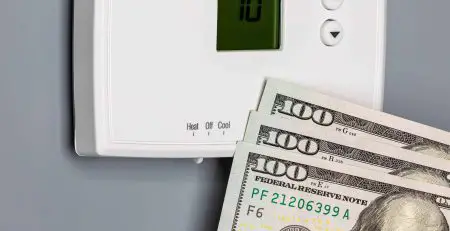Did you know that there are things you can do if you miss an IRS deadline? The Internal Revenue Service may be able to offer you some assistance that could help your tax situation. For those who worry about missing the deadline to file, we’re here to tell you what you can do! There are two different forms of assistance that you can find from the IRS for your tax debt and filing for taxes. This article will give you a brief on these opportunities and how you can benefit from them!
If You Miss an IRS Deadline, There are Things You Can Do
Typically, the United States Treasury Department will take over the tax refund that you did not claim. A good move at this point would be to discuss your situation with an expert. They will offer you information you might not have and help you throughout the filing process. Furthermore, the IRS can help you out too, when it comes to filing your taxes. There are two assistance programs that will make filing easier, which are: Tax Counseling for the Elderly (TCE) and Volunteer Income Tax Assistance (VITA). We are going to discuss the two programs in detail and allow you to understand more about their benefits.
Tax Counseling for the Elderly (TCE)
This program helps senior citizens that are a minimum age of 60 through specific tax assistance on topics that are relevant to the elderly. The IRS is responsible for this kind of support. However, IRS partners run program sites with IRS volunteers that serve as employees. Some of the topics that you would come across are pensions, planning for retirement, and more. Another fact about the IRS volunteers is that they normally have previous employment with non-profits that get IRS grants.
Volunteer Income Tax Assistance (VITA)
Some of the individuals that would qualify for VITA are people that earn a maximum of $60,000 per year, those with a disability, or those who don’t speak English well. This means that not everyone can get VITA benefits. This opportunity has been available for more than 50 years and offers free tax support. Similar to TCE, IRS partners run program sites with IRS volunteers that serve as employees. These volunteers also have previous employment with non-profits that get IRS grants.
Tax Debt And IRS Assistance
You may be wondering how much tax debt the United States has in total, well it’s roughly $527 billion worth. The IRS offers assistance on tax debt through the Fresh Start Program, which was established in 2011 to help with this issue. This program is a general term for several IRS debt support opportunities. Some of the Fresh Start program opportunities available are: Offer in Compromise (OIC), Penalty Abatement, Currently Non-Collectible (CNC), and Installment Agreement (IA).
Offer in Compromise (OIC)
The OIC program only accepts less than 50% of applicants every year, and they will receive support settling tax debt for a lower amount than what they owe. A tax expert could help you out throughout the application process. It might be hard for you to get into the program, but you can always submit an appeal within 30 days of your rejection letter to dispute the rejection!
Penalty Abatement
IRS penalties are a big problem since they make it harder to deal with tax debt. This program helps you avoid IRS penalties by lowering the penalties or even eliminating them! However, we suggest you should ask for help from a tax expert since the application can get very technical. In order to qualify for this program, you will need to show why you were unable to manage your tax debt. Situations that did not allow you to manage your tax debt or reasonable cause, would be natural disasters, serious illness, death (of the taxpayer or immediate family), and other disturbances. However, you cannot just announce to the program that you could not properly manage your tax debt because of a natural disaster. You will need to present proof of the reasonable cause to verify the situation to the IRS!
Currently Non-Collectible (CNC)
Did you know there are ways to stop debt collectors from coming to your door? The CNC program does this for those that are recognized by the State and the IRS. Furthermore, taxpayers must present financial evidence that they cannot pay off debt while financially struggling. How do the State and the IRS recognize a taxpayer? Taxpayers need to earn a monthly income before taxes that is less than their expenses, as compared to the national standard. That means that you are unable to pay off your tax debt and it leads to a halt in collecting your debt, which is what the CNC program offers.
Furthermore, to keep your CNC benefits, the IRS conducts regular financial reviews with those that participate in the CNC program. If you don’t follow through, then you might lose your CNC status and go back to having your debt collected. The IRS conducts these reviews to figure out whether you can fully or partially pay off your tax debt.
Installment Agreement (IA)
This IRS support program allows people to pay off their taxes through an installment plan for those that cannot repay their debt all at once. Those that qualify need to be on track with their tax returns and show that they cannot repay or borrow the full debt. Also, qualifying individuals need to be up-to-date with their filed tax returns and present all of their financial assets.
Overall
As you can see, there is a way out of pretty much everything, even your taxes. Instead of avoiding your taxes or postponing your taxes for another day, you should do your best to get it out of the way as soon as you can. Furthermore, if you have problems with filing, you can always turn to the IRS for help. Another thing that the IRS is good for is that it offers solutions to your tax debt problem. This gives you a chance to get back on your feet and fix your finances. No one likes to deal with taxes, but they are inevitable. However, the IRS understands how difficult taxes can be and offers a helping hand!











